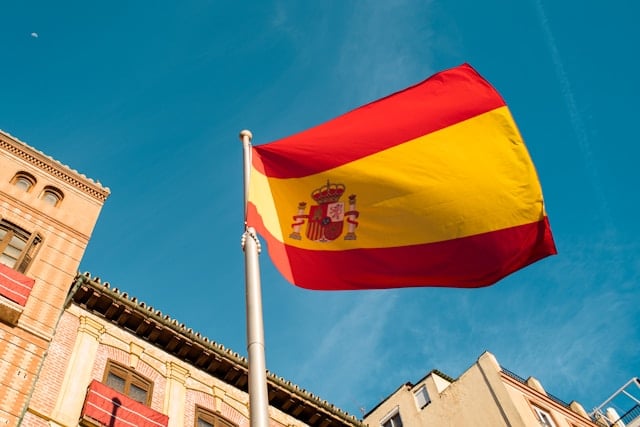If you’re considering applying for Spanish citizenship and meet all the requirements (more on that below) you’ll need to start thinking about your application.
The different documents you need, the fees you need to pay, the forms to print, the appointments to make — there’s a lot to keep in mind.
But it could all be in vain if you make some of the mistakes listed below, and your Spanish citizenship application could be denied.
It is important to make sure your application is 100 percent correct before applying, because any mistakes could send it back into the stuttering system that is Spanish bureaucracy.
Spain has a massive backlog of cases that leaves pending files loitering in the system for several years. It currently has 218,237 unresolved applications, some of which were made almost a decade ago.
READ ALSO: Spain granted nationality by residency to almost 250,000 people in 2023
That in mind, here are the most common reasons for having your Spanish citizenship application denied.
Having a criminal record
Having a criminal record whether in Spain or in your country of origin is usually grounds for an automatic rejection. Spanish immigration law experts ImmigrationSpain.es state that even minor misdemeanour level offences could impact your application: “You may be refused a licence for simple or basic reasons such as receiving a fine for speeding (reckless driving) or having tested positive in a breathalyser test.”
It isn’t entirely that simple, however. It depends on the severity of the offence, of course, whether or not you committed it in Spain, and if you served jail time, among other factors. In Spain, however, there is a way of ‘cancelling’ your record that involves paying a fine, serving the time (if applicable), and then waiting a period before applying to have the record wiped.
Only then, once your record has been cleared and the crime ‘deleted’, so to speak, should you apply for citizenship. But if you do it before, it’s a sure way to get denied.
READ ALSO:
- Step by step: How to apply for Spanish nationality
- Shock as Spain tells foreigners how to cancel their criminal record
Not fulfilling residency requirements
If you apply before you’ve met the residency requirements for citizenship, you’ll also be rejected.
In order to obtain nationality by residency you must have resided continuously in Spain for 1, 2, 5, or 10 years, depending on your situation and the means through which you’re applying.
The amount of time you have to wait before you apply for citizenship may vary depending on where you’re from and your family ties:
- 10 years is the normal rule
- 5 years if you are a refugee
- 2 years if you are from a Latin American country, Andorra, Equatorial Guinea, Philippines or Portugal. In all of these cases, you will not need to give up your original nationality, and you will be granted dual citizenship.
- 1 year for those married to a Spanish national or children/grandchildren of Spanish citizens born in Spain.
Misunderstanding ‘stay’ vs residency
A rule to keep in mind: the time before you applied for a residency card didn’t count.
Now you know how many years you must reside in Spain before becoming eligible for citizenship, you should also understand the difference between periods of ‘stay’ in Spain (such as time spent in Spain on a student visa, for example) versus legal residency in the country.
If you include ‘stay’ periods in the residency time as part of your application, it will be rejected. Time on tourist visas, short-term work visas, and any other type of non-residency stay, does not count towards your total time.
Many people misunderstand this and apply based on their total time in Spain, only to have their application rejected for not fulfilling the residency requirements.
This surprises some people because when applying for long-term residency (also known as ‘permanent’ residency) time spent in Spain on a student visa counts for half, but not for citizenship applications.
READ ALSO: EX-11: How to get your long-term residency card in Spain
Submitting incorrect documentation
Another reason citizenship applications are rejected in Spain is due to incorrect documents, and there’s a whole host of ways to fall foul of this mistake.
Submitting documents that are incorrectly translated or apostilled, or expired documents (such as your passport or police record) or even making mistakes as simple as spelling mistakes on the paperwork, could lead to your application being rejected, but is more likely to meant it is sent back to you, something that will delay the process significantly.
You can see the documents you will need to include in your application below, but note that the paperwork can vary depending on the type of application you’re making (ie. how you qualify for citizenship):
- Passport and NIE number
- Current residence permit
- Birth certificate
- Criminal record
- Marriage certificate (if applying for citizenship by marriage)
- Current census and padrón
- The certificates you will receive after passing the two required exams DELE A2 and CCSE
- If you want to give your children the possibility of getting citizenship by option, you should also include their birth certificates
- Proof of payment for the corresponding fee (around €100)
Not responding to the Ministry
If you do make a mistake with your application, the Ministry of Justice may get in touch for more documents, or to clarify an error in your application.
If you don’t reply to them, or reply after the deadline, your application will likely be rejected.
Leaving Spain for too long
According to Spanish law, the residency period necessary to obtain citizenship must be legal and uninterrupted, or ‘continuous’ as it’s usually referred to in Spanish.
That is to say, if you leave Spain for a prolonged period of time during your residency period, your citizenship application could be rejected.
How long is too long? Three months continuously outside of Spain if you are required to stay for 5, 2 or 1 year to apply for nationality, and 6 continuous months out of Spain if 10 years of residence is required for citizenship.



 Please whitelist us to continue reading.
Please whitelist us to continue reading.
Member comments